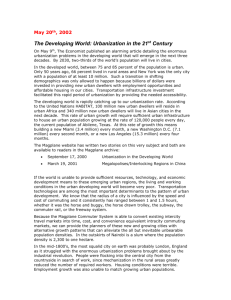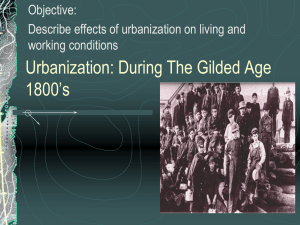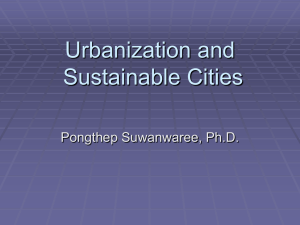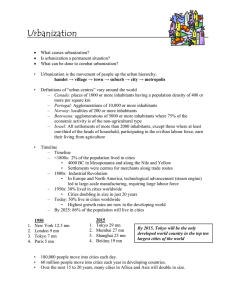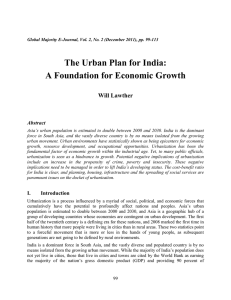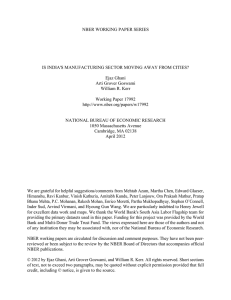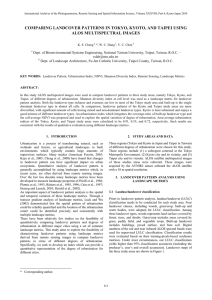UNU Global Seminar 2nd Tohoku Session
advertisement
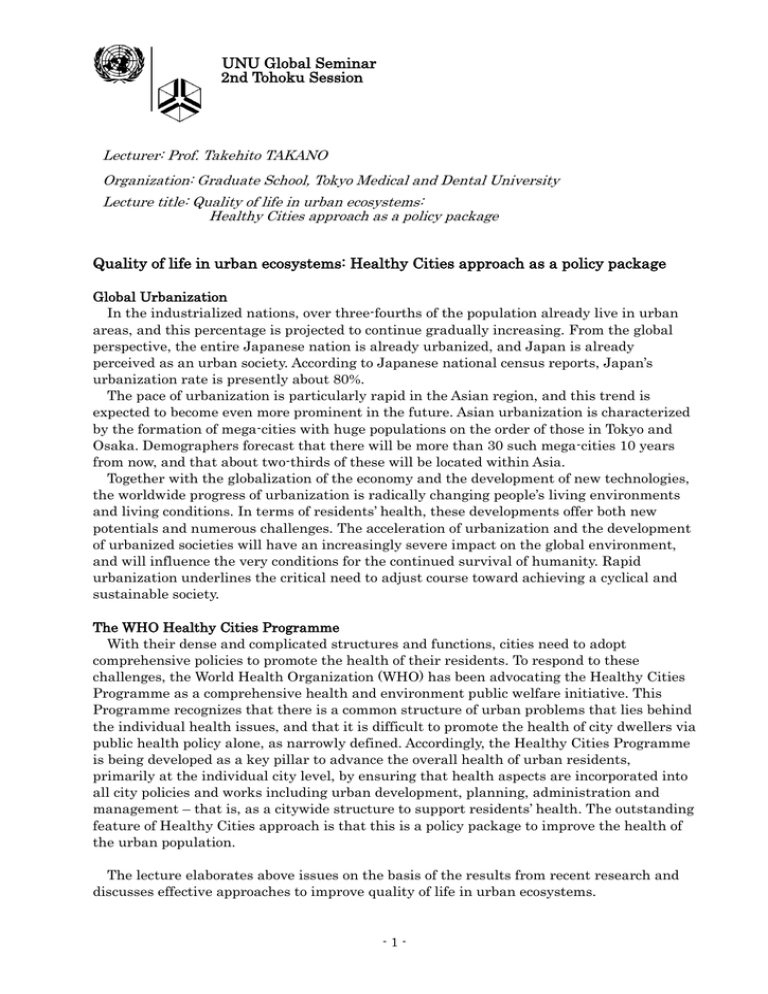
UNU Global Seminar 2nd Tohoku Session Lecturer: Prof. Takehito TAKANO Organization: Graduate School, Tokyo Medical and Dental University Lecture title: Quality of life in urban ecosystems: Healthy Cities approach as a policy package Quality of life in urban ecosystems: Healthy Cities approach as a policy package Global Urbanization In the industrialized nations, over three-fourths of the population already live in urban areas, and this percentage is projected to continue gradually increasing. From the global perspective, the entire Japanese nation is already urbanized, and Japan is already perceived as an urban society. According to Japanese national census reports, Japan’s urbanization rate is presently about 80%. The pace of urbanization is particularly rapid in the Asian region, and this trend is expected to become even more prominent in the future. Asian urbanization is characterized by the formation of mega-cities with huge populations on the order of those in Tokyo and Osaka. Demographers forecast that there will be more than 30 such mega-cities 10 years from now, and that about two-thirds of these will be located within Asia. Together with the globalization of the economy and the development of new technologies, the worldwide progress of urbanization is radically changing people’s living environments and living conditions. In terms of residents’ health, these developments offer both new potentials and numerous challenges. The acceleration of urbanization and the development of urbanized societies will have an increasingly severe impact on the global environment, and will influence the very conditions for the continued survival of humanity. Rapid urbanization underlines the critical need to adjust course toward achieving a cyclical and sustainable society. The WHO Healthy Cities Programme With their dense and complicated structures and functions, cities need to adopt comprehensive policies to promote the health of their residents. To respond to these challenges, the World Health Organization (WHO) has been advocating the Healthy Cities Programme as a comprehensive health and environment public welfare initiative. This Programme recognizes that there is a common structure of urban problems that lies behind the individual health issues, and that it is difficult to promote the health of city dwellers via public health policy alone, as narrowly defined. Accordingly, the Healthy Cities Programme is being developed as a key pillar to advance the overall health of urban residents, primarily at the individual city level, by ensuring that health aspects are incorporated into all city policies and works including urban development, planning, administration and management – that is, as a citywide structure to support residents’ health. The outstanding feature of Healthy Cities approach is that this is a policy package to improve the health of the urban population. The lecture elaborates above issues on the basis of the results from recent research and discusses effective approaches to improve quality of life in urban ecosystems. -1-
